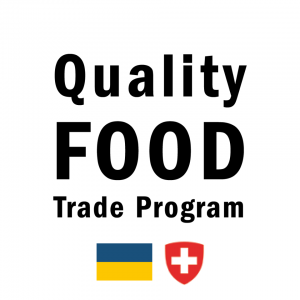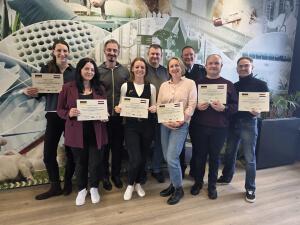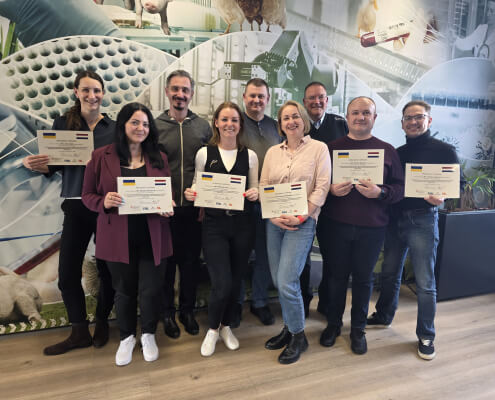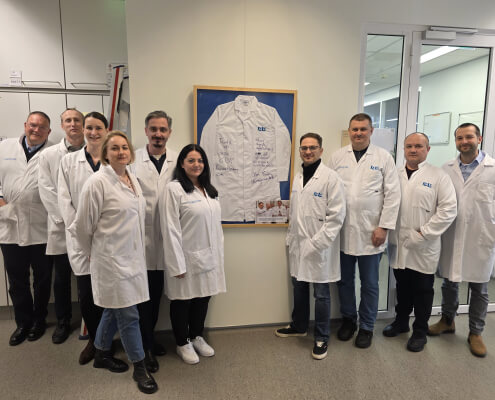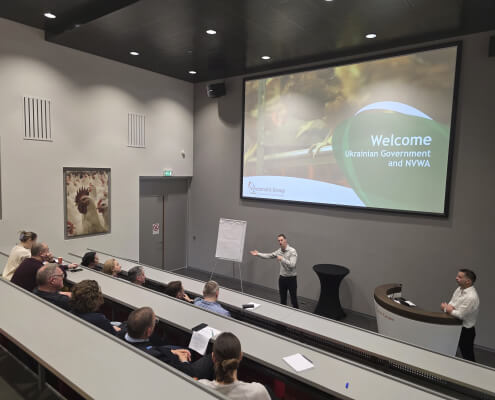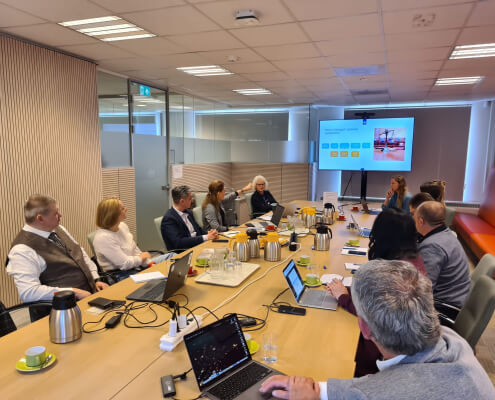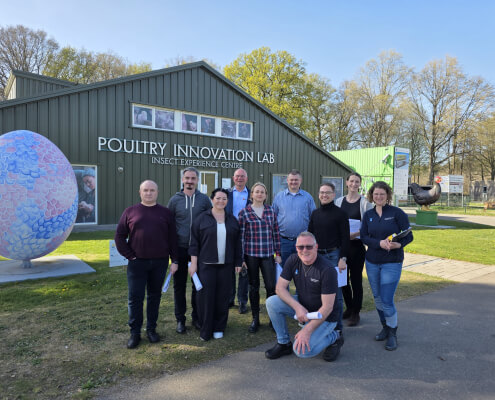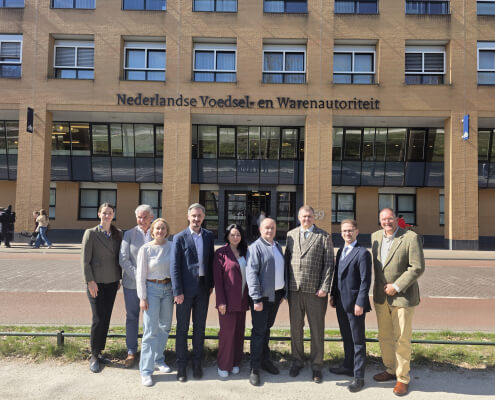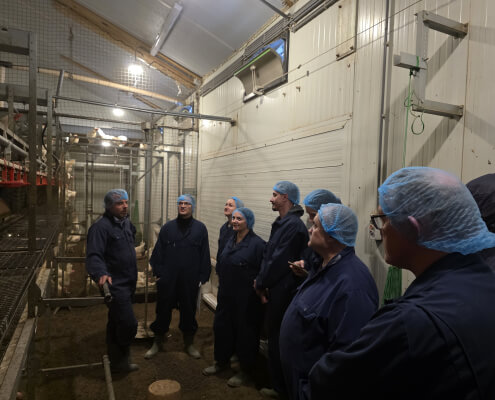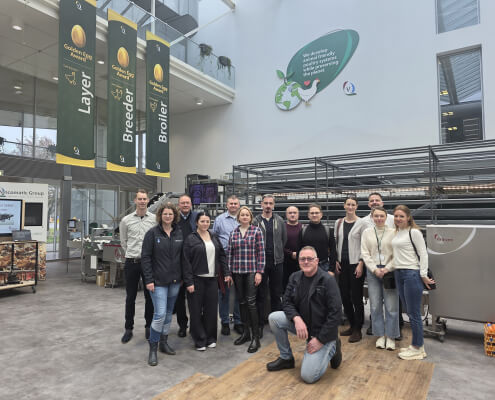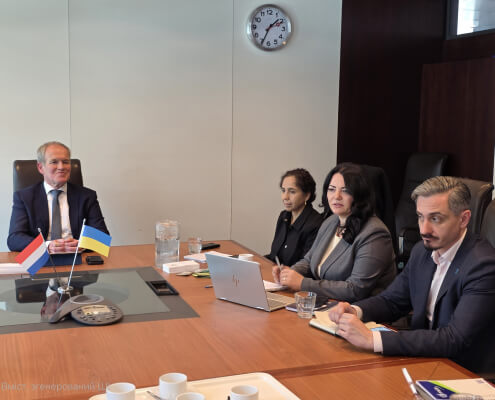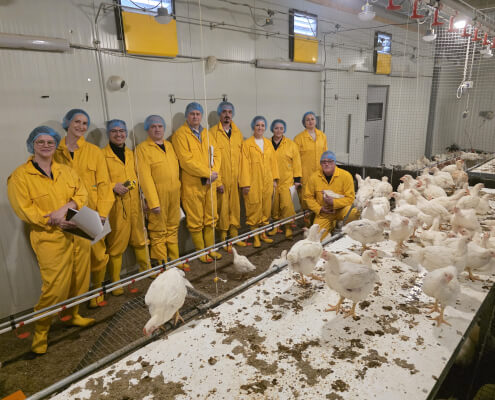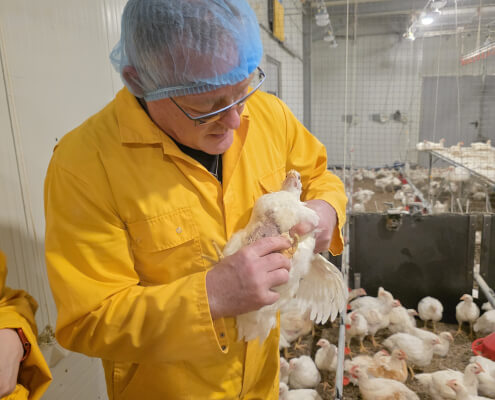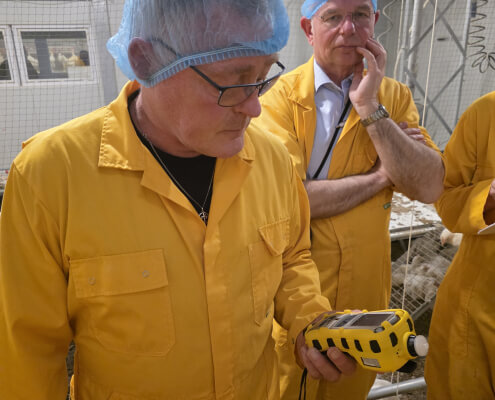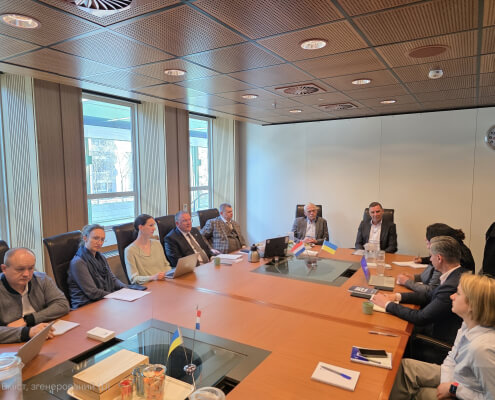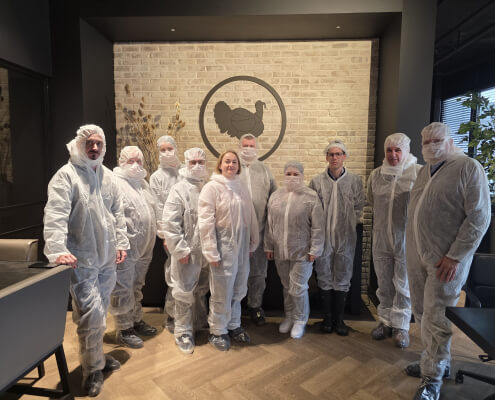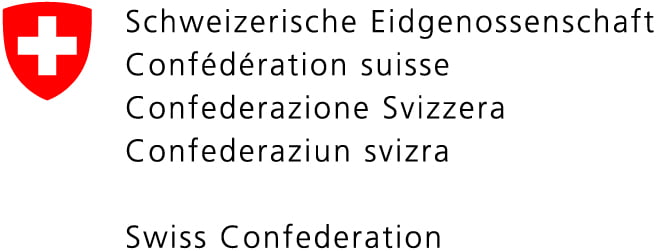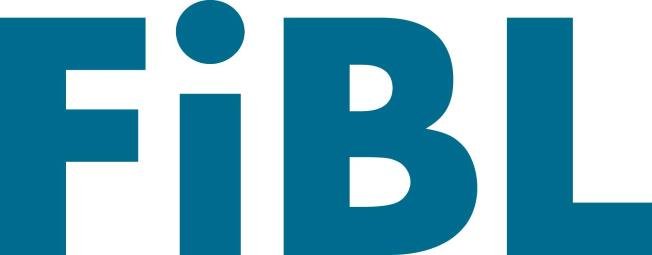Study visit to the Netherlands: Ukrainian experts explored approaches to implementing EU rules for farmed animal welfare
The main focus of the study visit, held from April 7 to 11, 2025, was to explore the experience of EU member states in implementing animal welfare requirements and conducting official control measures to ensure compliance with these standards. The visit brought together representatives of the Ministry of Agrarian Policy and Food of Ukraine (hereinafter – MAPF) and the State Service of Ukraine on Food Safety and Consumer Protection (hereinafter – SSUFSCP). It was organized with the support of the Government of the Kingdom of the Netherlands and Switzerland within the framework of the Swiss-Ukrainian Programme “Higher Value Added Trade from the Organic and Dairy Sector in Ukraine” (Quality FOOD Trade Program).
The study visit began with a meeting with representatives of the Ministry of Agriculture, Fisheries, Food Security and Nature of the Netherlands (hereinafter – LVVN). During the meeting, participants discussed the organizational structures and responsibilities of ministries and competent authorities in both the Netherlands and Ukraine, EU legislation and national legal requirements regarding animal welfare on the farm, during transport and at the time of killing, as well as planned legislative changes related to animal welfare. The discussion also focused on future areas of cooperation, particularly in the context of Ukraine’s path toward EU membership.
Gerbert van der Wal, Deputy Director for Europe and International Agribusiness Policy at LVVN, expressed his appreciation for Ukraine’s efforts in aligning with EU policies, especially under such challenging circumstances. He emphasized the readiness of the Government of the Kingdom of the Netherlands to provide all possible support to Ukraine on its path toward EU membership.
Wim Pelgrim, the Acting Chief Veterinary Officer of the Kingdom of the Netherlands, emphasized the vital role of veterinarians in ensuring animal health and welfare, which directly impacts the production of safe food. He noted that the Netherlands is one of the leading EU member states in implementing animal welfare rules, and expressed hope that the meetings and exchange of experiences during this study visit would be valuable and beneficial for Ukraine in adopting EU standards.
Gerard Bakker, Inspector General and Head of the Netherlands Food and Consumer Product Safety Authority (NVWA), expressed deep respect for Ukraine’s resilience, crisis management, and the efforts made to implement EU legislation, including animal welfare rules, despite the ongoing war. He noted that while the Netherlands is a small country, it is the largest exporter of food products among EU member states, and Ukraine is a major agricultural nation. In his view, the exchange of experience will offer valuable lessons for both sides and create opportunities for mutual learning.
Over the following two days, the Ukrainian delegation spent time at the NVWA, where they had the opportunity to learn about its organizational structure and key areas of activity. Edzart Bruinier, Senior Advisor International Cooperation at the NVWA, explained that the agency strategically allocates its resources to areas where significant risks exist and where the competent authority must take action to reduce identified risks. For this purpose, the NVWA operates under a three-tier system:
1) Strategic level – identifying the highest risks within the sector;
2) Tactical level – deciding how to respond to these risks, planning inspections, and setting interventions;
3) Operational level – conducting on-site inspections and enforcing legislation accordingly.
He emphasized that the NVWA’s main role in the field of animal welfare is to verify whether business operators are effectively implementing their processes, with a focus on preventing avoidable discomfort, pain, distress, and suffering for animals.
Over the course of two days, 11 specialists from various departments and divisions of the NVWA provided participants with insights into the following topics:
– Key aspects of EU and national legislation regarding the welfare of farmed animals on the farm, during transport and at the time of killing, and how the NVWA ensures improved compliance with these regulations;
– The system of specialized training for business operators and establishments staff responsible for keeping, slaughtering, transporting farmed animals and/or performing related operations, as well as the NVWA’s approach to training inspectors and official veterinarians;
– The risk-based approach to planning and implementing official control measures and the intervention policy for violations of legislation, including those related to animal welfare;
– The role of private control systems and how these systems complement official controls carried out by the competent authority;
– The NVWA’s approach to evaluating whether new legislative proposals from the Ministry (LVVN) can be effectively implemented and enforced in practice, based on the agency’s capacity, as well as the tools used for this assessment.
The visit program also included practical days, during which members of the Ukrainian delegation participated in field visits to observe how animal welfare legislation is implemented in practice. These visits provided valuable insights into the particularities of inspections and other control measures related to compliance with welfare rules. The delegation visited the following sites:
– Vencomatic Group, a leading Dutch company specializing in the design and production of innovative poultry housing systems based on the natural behaviour of hens, aiming to improve their welfare while maintaining productivity;
– A layer farm that operates a cage-free housing system, ensuring compliance with animal welfare standards;
– Aeres Training Centre, which focuses on training personnel working on farms with livestock and partially on trainingNVWA inspectors. The center includes demonstration facilities for animals kept for farming purposes, including laying hens and broilers. Here, the delegation observed poultry keeping conditions in line with animal welfare legislation. NVWA inspectors explained their approach to inspection preparation, demonstrated inspection procedures in practice, and clarified the subsequent steps an inspector takes to complete the inspection;
– ESBRO slaughterhouse, where an NVWA official veterinarian explained the core responsibilities related to animal welfare rules at the slaughterhouse and demonstrated key steps in the daily monitoring of the operator’s implementation of standard operating procedures.
During the visit, the delegation also toured the Royal GD Animal Health Service, whose core function is the implementation of animal disease monitoring and surveillance programs in the Netherlands. In addition, Royal GD is engaged in innovative activities and operates its own R&D department, which conducts research and development, including in the field of animal welfare. The delegation was presented with the results of a project aimed at developing an AI-based IT tool for monitoring poultry behaviour on farms. This tool is designed to detect abnormal behaviour patterns, enabling early identification of health issues and potential violations of animal welfare standards related to housing conditions.
At the conclusion of the visit, the participants summarized the outcomes of the study tour, received certificates from the host organization, and discussed with NVWA the possibilities for further in-depth cooperation in the field of animal welfare — including identifying priority areas for planning similar study visits in the future.
The study visit was supported by Government of the Kingdom of the Netherlands and by Switzerland within the framework of the Swiss-Ukrainian Programme “Higher Value Added Trade from the Organic and Dairy Sector in Ukraine” (QFTP), implemented by the Research Institute of Organic Agriculture (FiBL, Switzerland) in partnership with SAFOSO AG (Switzerland).
